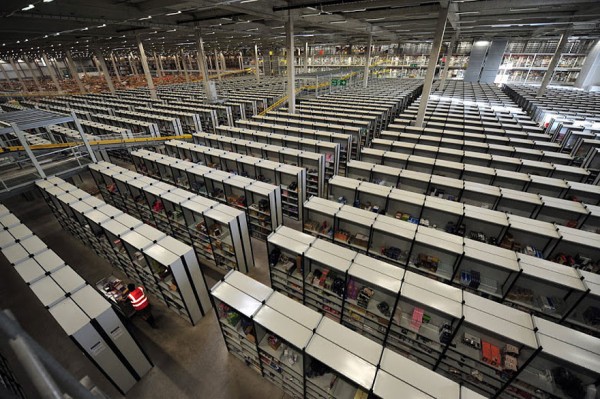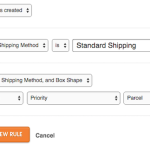An outsourced warehouse is a popular fulfillment strategy for many entrepreneurs, especially those that have a high quantity of products to be stored. Essentially, it involves taking your inventory and shipping operations, and moving them to privately owned warehouse that receives orders and ships them off to customers. Like in-house fulfillment, there are benefits and drawbacks to an outsourced warehouse, so let’s unpack them.
Sourcing the benefits
The ultimate perk to an outsourced warehouse is the fact that you don’t have to handle the tedious, routine tasks of day-to-day, hour-to-hour order fulfillment and inventory management. If you’re fortunate enough to be drowning in a sea of orders, or unfortunate enough to be crushed by mountains of inventory, an outsourced warehouse is a potential option to relieve your pains.
Generally, an outsourced warehouse is likely to know what’s it’s doing, and they’re certainly experts on the ins-and-outs of efficient fulfillment, especially considering it’s their job. A merchant’s responsibilities extend beyond just sending out orders – there are other time consuming, just-as-important matters to attend to, like product and content marketing, promotions, brand building, etc. Seeing as shipping out your products is one of the final steps of the fulfillment process, it’s definitely a good idea to slot out some time for efforts that will get your customers buying to begin with. Outsourced warehouses can seriously provide entrepreneurs with the time to focus on other parts of their business.
Beware of the cons
But nothing is all pros; there are cons to an outsourced warehouse as well. Obviously, an outsourced warehouse is going to need to be paid, and that includes storage, shipping and handling costs. It may end up being more costly than if you simply stored and shipped product yourself, and you’ll have to gauge whether or not working on other business matters, like marketing efforts, are bringing in enough sales over time to offset the increased costs.
In the event that a product is returned, and the outsourcer’s shipping efforts were all for naught, returns management can be a little tricky. A return is more than lost revenue – it’s an opportunity to learn how the business can improve. Was the product damaged? Perhaps the product description was so amazingly written that it over-hyped the customer and led to dissatisfaction on arrival. A return is potential for valuable feedback, but, if it’s sent straight back to the warehouse it came from, it can’t tell you anything.
Control issues
Control must also be sacrificed if you partner with an outsourced warehouse. Merchants are unable to personalize packaging and add those personal touches to their customers’ orders that help drive customer loyalty and build brand awareness. Call it a cost of efficiency, but that personalized product marketing that takes a bit more effort and time is no longer an option.
Product marketing isn’t the only control that’s lost either. Your precious inventory is locked away in a warehouse, and can’t send you letters to let you know how it’s going. There’s a distinct lack of insight on the status of your inventory – what products are selling quickly, and what products are collecting dust. This makes it difficult to create effective promotions that get rid of pesky product that just won’t sell.
Summary
The phrase “out of sight, out of mind” is a complete lie in the world of an ecommerce entrepreneur. While there are several benefits to outsourcing fulfillment, you should be cognizant of the loss of insight into your inventory and fulfillment processes. Knowing exactly how much of a product is on hand, and how well it’s performing is of utmost importance, and the right inventory management sytems can definitely help remedy some of the drawbacks that emerge with an outsourced warehouse.



